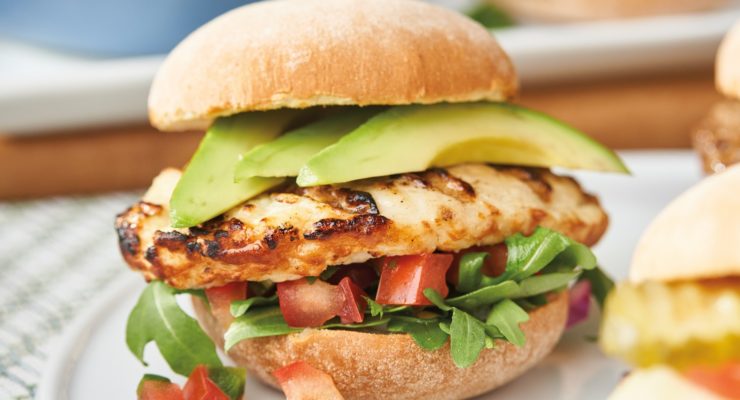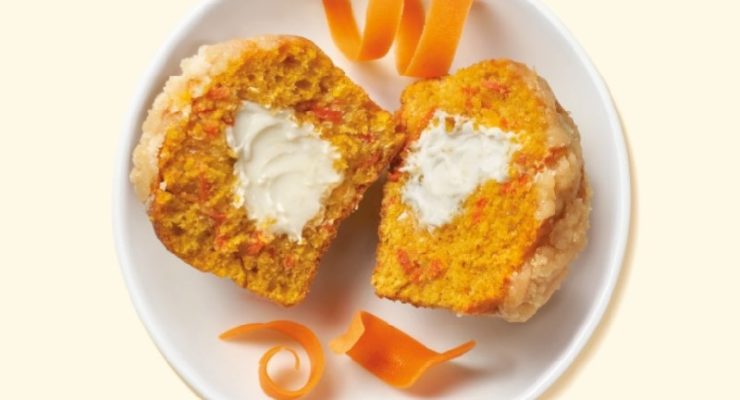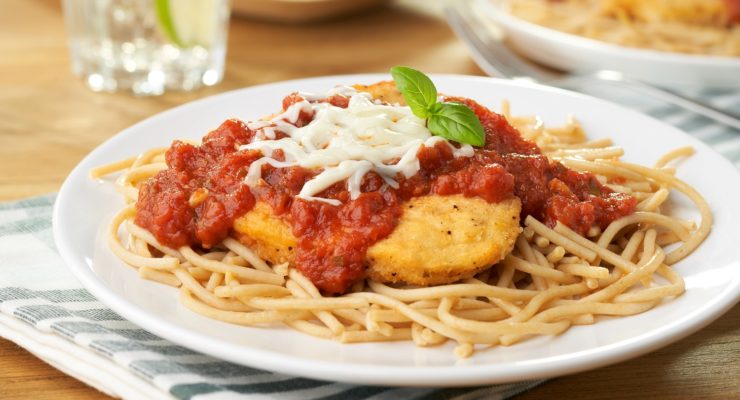Grocery Add-Ins: What are Nutrisystem PowerFuels?
Article posted in: Nutrisystem for MenLean proteins and healthy fats can make any weight loss plan more satisfying, delicious and easy to stick to. These ingredients are often the stars of our dinner plates and make the best smart and filling snacks. But how do you know how much of them to eat, and what is considered a healthy choice?
What is a PowerFuel?
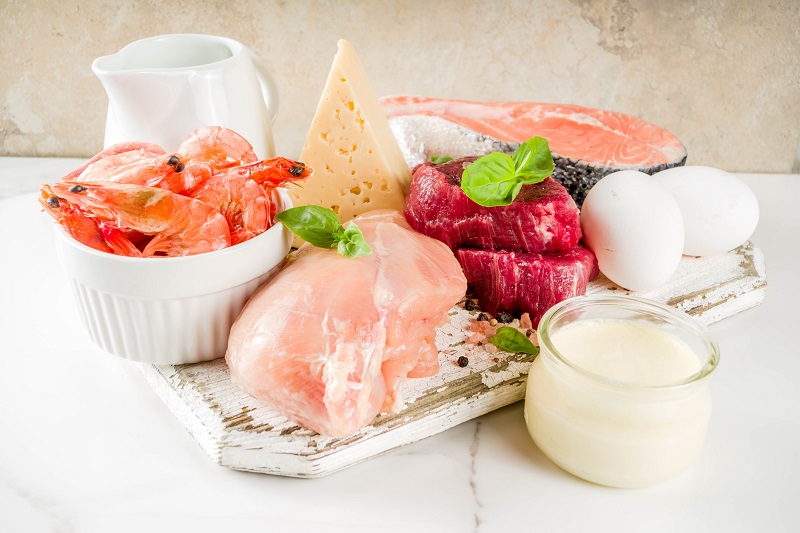
Here at Nutrisystem, we call lean proteins and healthy fats “PowerFuels.” These hearty and filling ingredients will be incorporated into your menu each day. While the number of PowerFuels that you add in will vary based on your specific Nutrisystem meal plan (Check the Nutrisystem app for your plan guidelines!), the definition is the same for everyone:
PowerFuel grocery add-ins consist of healthy fats and high-quality proteins that contain essential amino acids. They digest slower and help you stay full longer. They also contribute to muscle tone which, in conjunction with daily activity, can help you feel strong.
PowerFuels consist of items like meat, fish, dairy, nuts, seeds and avocados. We recommend that most of your grocery add-ins come from minimally processed, whole food choices. You can find the most nutrient dense PowerFuel options in the Nutrisystem Grocery Guide!
If you choose to include packaged foods not in the Grocery Guide, be sure they contain between 80-120 calories with at least 7 grams of protein OR at least 7 grams of total fat, with no more than ½ of the fat from saturated fat (ex. if food contains 7 grams of total fat, saturated fat should be 3.5 grams or less).
Examples of PowerFuels
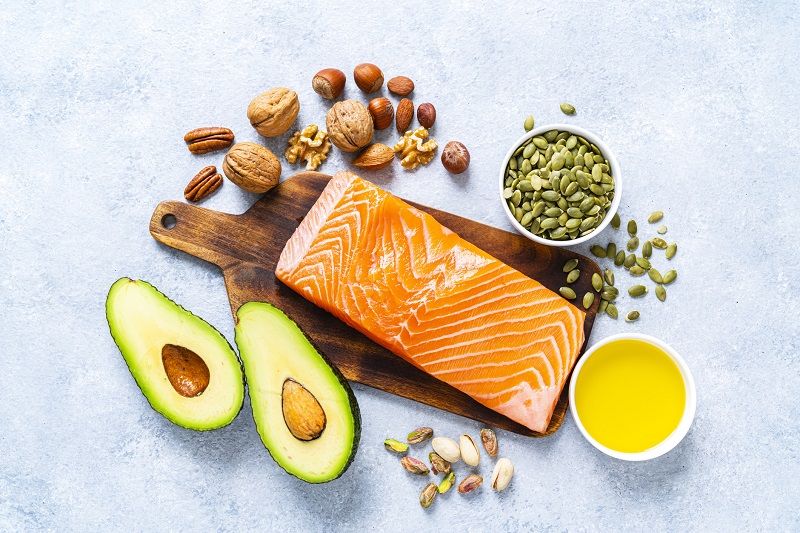
Here is a list of Nutrisystem PowerFuel foods that we love cooking with and snacking on. Be sure to check out the Nutrisystem Grocery Guide for even more examples!
Eggs and Dairy
- American, Swiss or Provolone Cheese, low-fat or reduced-fat, 1 oz. or 1 slice
- Cottage Cheese, low-fat or fat-free, no-salt-added, ½ cup
- Eggs, 1 large
- Greek Yogurt, low-fat or fat-free, 2/3 cup or single serving containers (about 6 oz.)
- Milk, fat-free or low-fat, 1 cup (8 fl. oz.)
- Milk Alternatives, 8 fl. oz., (Unsweetened varieties that contain no more than 130 calories, no more than 2g added sugars, and at least 8g protein per serving)
- Semisoft Snack-Sized Cheese Pieces (such as Babybel® brand), light, 2 pieces or about 1 oz.
- String Cheese, low-fat or reduced-fat, 1 piece
Meat and Poultry
- Chicken, 2 oz. cooked
- Deli Meats, 2 oz., low- or reduced-sodium
- Lean Beef, 2 oz. cooked
- Pork, lean cuts, 2 oz. cooked
- Turkey, 2 oz. cooked
Seafood
- Canned or Pouched Fish (tuna or salmon), in water, 2 oz. or ½ cup
- Fatty Fish (tuna, salmon, mackerel, swordfish, trout), 2 oz. cooked
- Shellfish (shrimp, lobster, crab, scallops, mussels), 3 oz. cooked
- White Fish (bass, flounder, tilapia, cod, halibut), 3 oz. cooked
Nuts and Seeds
- Almond Butter, no added sugar, 1 Tbsp.
- Almonds, unsalted, 2 Tbsp. or 12 nuts
- Brazil Nuts, unsalted, 2 Tbsp. or 4 nuts
- Cashews, unsalted, 2 Tbsp. or 9 nuts
- Chia Seeds, unsalted, 2 Tbsp.
- Hemp Seeds, unsalted, 2 Tbsp.
- Nut Butter, no added sugar, 1 Tbsp. (Almond Butter, Cashew Butter, Peanut Butter Pumpkin Seed Butter, Sunflower Seed Butter Tahini)
- Peanuts, unsalted 2 Tbsp. or 17 nuts
- Pecans, unsalted, 2 Tbsp. or 7 halves
- Pistachios, unsalted, 2 Tbsp. or 24 nuts
- Pumpkin Seeds, unsalted, 2 Tbsp.
- Walnuts, unsalted, 2 Tbsp. or 7 halves
Plant-Based Alternatives
- Edamame, shelled, ½ cup
- Tempeh, low- or reduced-sodium, 3 oz. cooked or ½ cup
- Tofu, 1 cup
Miscellaneous PowerFuels
- Avocado, ¹⁄₃ fruit or ¼ cup pureed or mashed
- Olives, 8-10 large or 16-20 small, limit quantities due to sodium content
- Protein Bars, 1 bar (80 -120 calories with at least 8 g protein and no more than 5 g added sugar per serving)
- Protein Shakes or Powders, serving size varies (Between 80 – 140 calories with at least 10g protein and no more than 5g added sugar per serving)
PowerFuel Snack Ideas
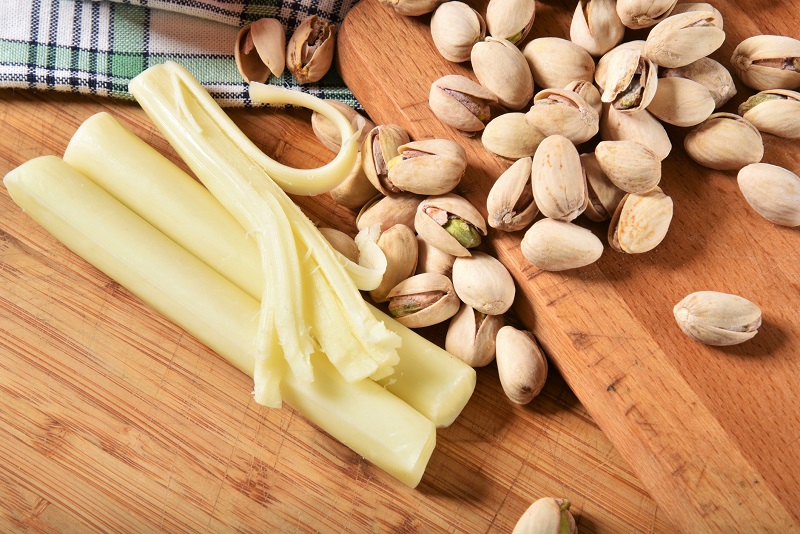
So now that you know a little bit about individual PowerFuel ingredients, how do you incorporate them into your meal plan?
The number of PowerFuels that you add in each day will vary based on your specific Nutrisystem meal plan. Be sure to check the Nutrisystem app for your plan guidelines! Generally, PowerFuels will be a part of the healthy Flex meals and snacks that you prepare your own, and are usually paired with a SmartCarb. Some Nutrisystem plans are also required to add PowerFuels to some Nutrisystem meals in order to meet daily calorie requirements.
Many PowerFuel examples in the Nutrisystem Grocery Guide can be enjoyed as a snack on their own, like a string cheese, protein shake or handful of nuts on the go. But on days that you don’t mind doing a little bit more prep, you can find plenty of recipes using PowerFuels on The Leaf.

